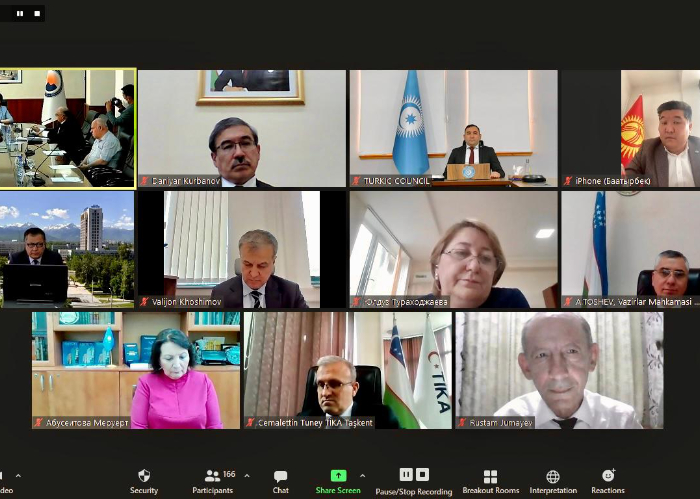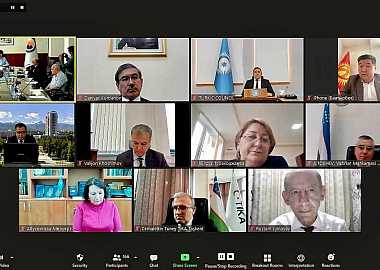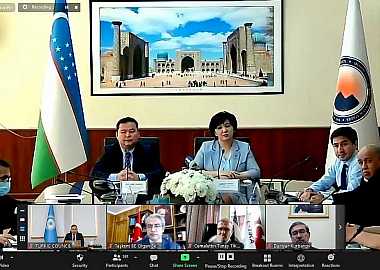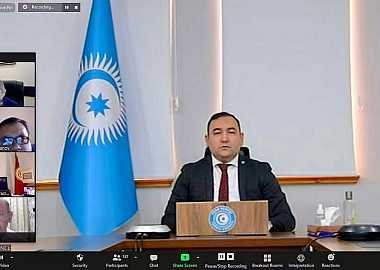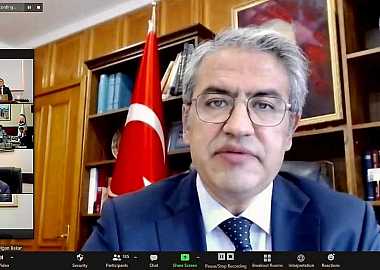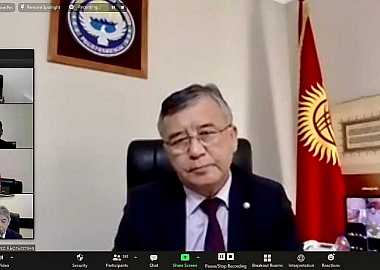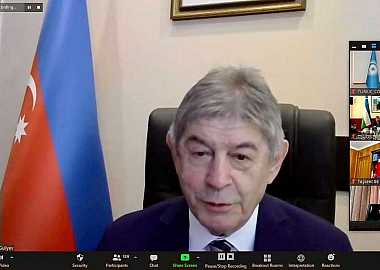The International Conference was co-organized by the Tashkent State University of Oriental Studies, Turkic Council Secretariat and the Ministry of Foreign Affairs of Uzbekistan on April 30, 2021, in a virtual format.
More than 200 representatives from Turkic Council, TURKSOY, diplomatic missions, as well as leading think tanks, universities, and scientific institutions of the Member and Observer States, namely Azerbaijan, Kazakhstan, Kyrgyzstan, Turkey, Uzbekistan, and Hungary took part in the conference.
During the event, the participants shared their views on the current state and perspectives of enhancing multifaceted cooperation within the Turkic Council and the role of Uzbekistan in this very process.
The experts voiced the growing interest among the Member States in the development of practical interaction in the field of economy, trade, transport, infrastructure, tourism, and innovation, which makes the Turkic Council an attractive and effective regional international organization.
Participants also pointed to the full solidarity and mutual trust among the member countries as the important features that distinguish the Turkic Council from other similar organizations.
They noted that Uzbekistan had brought a new breath to the international presence and dynamism of the Turkic Council, and its membership had created excitement within the Organization as well as a strong added value to all its activities in the political, economic, cultural and social fields.
Attending the welcoming ceremony of the conference with a keynote speech, Deputy Secretary General of the Turkic Council Mirvokhid Azimov underlined that the Member States have strong ties based on common history, language, culture, and common values that constitute the most powerful assets for the development of pragmatic cooperation in various fields.
Highlighting a huge untouched potential of cooperation among the Turkic countries, Deputy Secretary General Azimov emphasized that the absence of political problems among the Member States while applying the consensus-based approach in the decision-making process within the Turkic Council contributes to rendering the Organization into an effective regional mechanism of comprehensive cooperation.
Following the event, the participants expressed hope that in the coming decades the Turkic World would become more politically cohesive, economically integrated, and interconnected in transport and communications, as well as more intensive in the promotion and popularization of the great cultural and historical heritage of the Turkic peoples.
More than 200 representatives from Turkic Council, TURKSOY, diplomatic missions, as well as leading think tanks, universities, and scientific institutions of the Member and Observer States, namely Azerbaijan, Kazakhstan, Kyrgyzstan, Turkey, Uzbekistan, and Hungary took part in the conference.
During the event, the participants shared their views on the current state and perspectives of enhancing multifaceted cooperation within the Turkic Council and the role of Uzbekistan in this very process.
The experts voiced the growing interest among the Member States in the development of practical interaction in the field of economy, trade, transport, infrastructure, tourism, and innovation, which makes the Turkic Council an attractive and effective regional international organization.
Participants also pointed to the full solidarity and mutual trust among the member countries as the important features that distinguish the Turkic Council from other similar organizations.
They noted that Uzbekistan had brought a new breath to the international presence and dynamism of the Turkic Council, and its membership had created excitement within the Organization as well as a strong added value to all its activities in the political, economic, cultural and social fields.
Attending the welcoming ceremony of the conference with a keynote speech, Deputy Secretary General of the Turkic Council Mirvokhid Azimov underlined that the Member States have strong ties based on common history, language, culture, and common values that constitute the most powerful assets for the development of pragmatic cooperation in various fields.
Highlighting a huge untouched potential of cooperation among the Turkic countries, Deputy Secretary General Azimov emphasized that the absence of political problems among the Member States while applying the consensus-based approach in the decision-making process within the Turkic Council contributes to rendering the Organization into an effective regional mechanism of comprehensive cooperation.
Following the event, the participants expressed hope that in the coming decades the Turkic World would become more politically cohesive, economically integrated, and interconnected in transport and communications, as well as more intensive in the promotion and popularization of the great cultural and historical heritage of the Turkic peoples.


